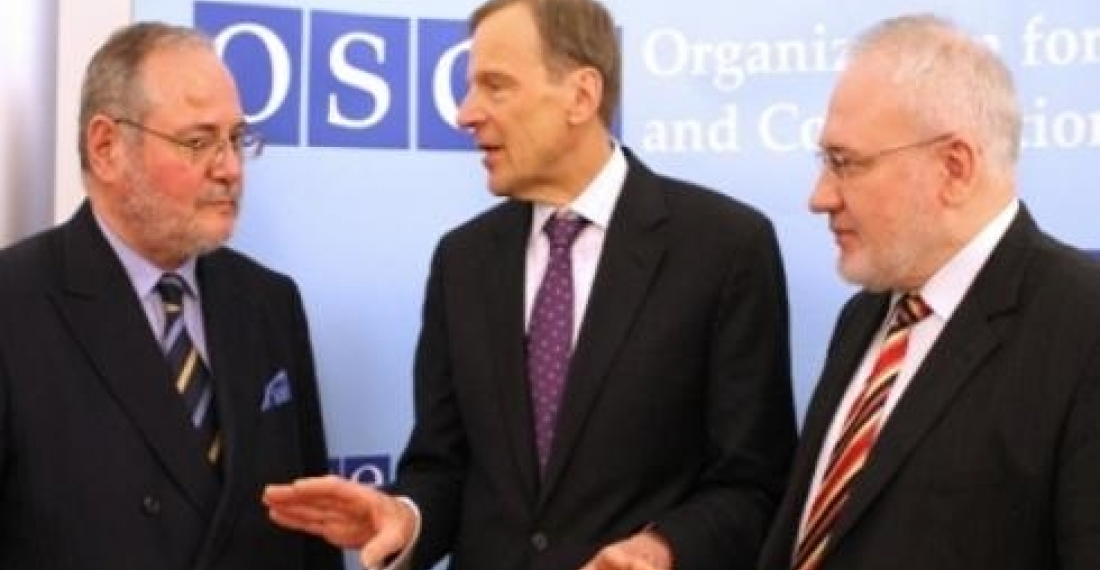A meeting between the Foreign Ministers of Armenia and Azerbaijan and the co-Chair of the OSCE Minsk Process was held yesterday in Paris. A statement by the OSCE states that "the meeting was held in a positive, constructive manner". The statement adds that the co-Chair will visit the region in the coming weeks.
The statement says that "the Co-Chairs discussed with the Ministers the way forward on resolving the Nagorno-Karabakh conflict, as well as further work on development of humanitarian contacts and the creation of a mechanism to investigate ceasefire violations, and preservation of sites of historic and cultural value. The Co-Chairs also reiterated deep concern over recent incidents along the front lines and stressed the need to respect the 1994 ceasefire agreement. The Foreign Ministers expressed their determination to continue working with the Co-Chairs to reach a peaceful settlement, and their readiness to carry out confidence-building measures that could improve the atmosphere for negotiations."
As has been the case on previous occasions the sides had no difficulty to agree to broad general statements. The OSCE press release however gave little indication of how the peace process will be taken forward, but the tone of the statement is meant to reassure the public in the region and beyond that the two sides are once more constructively engaged in negotiations. For the moment however, the priority of the international mediators is to stabilise the situation on the line of contact. An OSCE monitoring exercise, involving four monitors, will take place tomorrow. Over the last forty eight hours there were again reports of cease fire violations. One Azerbaijani soldier has been reported wounded.
source: commonspace.eu
photo: Diplomats from France, Russia and the US who co-chair the Minsk Group will visit the region again soon. (picture courtesy of the OSCE)







